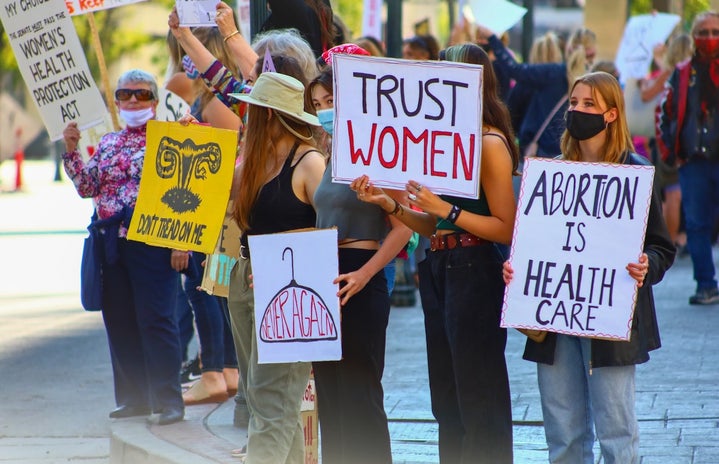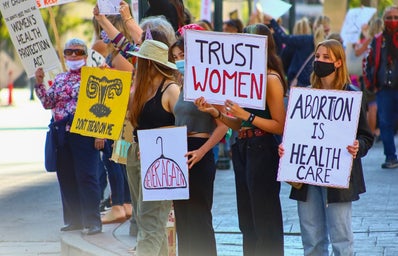As an adoptee, I often hear stories like mine used by anti-abortion activists as a way to promote the pro-life narrative that adoption is a “quick fix” for unwanted pregnancies. What they fail to understand is that adoption is a traumatic process that undoubtedly alters the course of a person’s life. Birth mothers may experience post-traumatic stress disorder, anxiety, depression, and suicidal thoughts throughout the adoption, and in some cases, it lasts a lifetime. Adoption is not a short process, since birth mothers carry a child for nine months and go through all the stages of childbirth. It is not a secret that maternal mortality is a grave concern, and Black patients have a much greater risk of dying during childbirth compared to White patients. Moreover, some people are unable to carry a child to term, as it may put their health at risk, and at that point, an abortion may be medically necessary.
Some anti-choicers argue that because I was given a chance at life, I should just be grateful and forget the fact that bodily autonomy is being taken away from millions of women across the US. I am well aware that if my birth mother had decided to get an abortion, I would not be here. The irony is that I am lucky that I was adopted as a newborn and even more privileged that I was placed with a family that loved me unconditionally and went above and beyond to give me the life I have now. There are thousands of children in foster care and some of them never leave the system. Background checks have improved, but there are still cases in which adopted children are taken advantage of by the people that are supposed to take care of them, and the toll it takes on their mental and physical health is irreversible.
Adoption is a substitute for parenting, while abortion is an alternative to pregnancy. When a person chooses to get an abortion, the decision is not taken lightly. I know from my own experience that adoption is not a one-time thing. It stays with me every day, and although it has changed my life for the better, that is not to say there are no consequences. I of all people know that adoption is not a viable option for everyone, especially children that have experienced sexual victimization. I would prefer that birth mothers have bodily autonomy and access to a safe abortion than be forced to give up a child if they feel that that is not a suitable option for them. I will no longer be used as a pawn against reproductive rights, and refuse to be labelled as a hypocrite when I advocate for my rights as a woman.
At the end of the day, choice is what matters. There should not be a world in which a child grows up knowing that they were born as a result of a person being denied control over their own body. A mother should not have to feel resentment towards their child if they were not given a choice when it comes to an unwanted pregnancy. My experience is continually recycled by pro-life activists as an attempt to judge others for making a choice that is different from that of my birth mother. Rather than getting caught up in the debate about whether abortion is morally right, we need to start putting our efforts into making sure women feel supported and safe regardless of what they choose to do. The one similarity between both adoption and abortion is that it is a long and often isolating process, and more energy should go into mental health resources to make sure that mothers feel seen. I am adopted, but I am also pro-choice. Taking away our rights is never the solution, and I will continue to fight for women to have more choices, rather than fewer.


